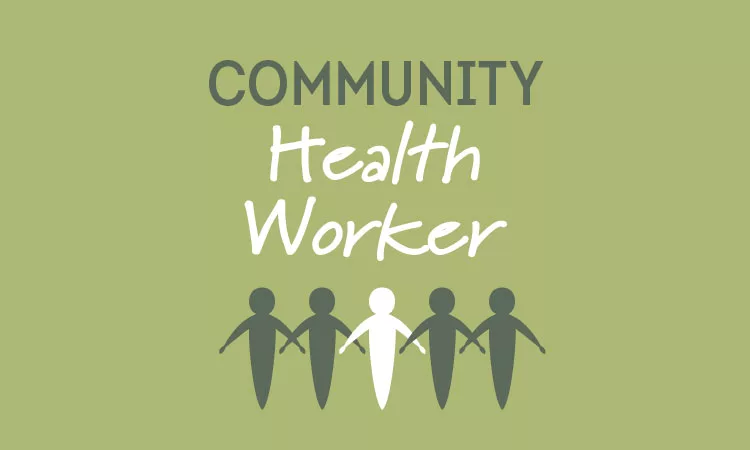Community health is a field of public health that focuses on protecting and improving health in a community. A person who works in community health designs and implements strategies and protocols geared to enhance general health and patient outcomes in their specific community.
What do community health workers do?
Community health workers work with local healthcare organizations to increase community health and safety awareness. Their day-to-day responsibilities vary depending on the type of community they serve. They may have to work in cities or rural areas and provide quality services to people with limited resources. They may work in government programs or with non-profit organizations.
How can you become a community healthcare worker?
Educational requirements for community health workers vary widely depending on the specific roles and responsibilities of the position in question. While some jobs might only require a high school diploma, some may need an advanced degree in community health.
If you’re looking to forge a successful career in public health, you should complete a bachelor’s degree at the very least. Having an undergraduate degree will greatly increase your job prospects. A degree in community health will also provide you with basic knowledge of subjects like anatomy, physiology, pathology, and epidemiology, which will help you be more equipped to understand the requirements of the job.
If you want to work in a more specialized role, your goal should be to earn an advanced degree, like a Master of Health Administration. These days you can even do your MHA online. Other common programs include health education, school health education, public health education, and health promotion.
Some employers also require you to have a Certified Health Education Specialist credential. This shows the employer that you are more experienced and invested in your field.
Some basic duties of a community health worker involve the following:
- Paying home visits
- Ensuring proper sanitation
- Treatment of common illnesses
- Health education
- Providing maternal and child health support
- Collecting and recording the data
- Helping patients navigate healthcare and social systems
- Provide informal counseling, screening, and referrals
Importance of Community Health:
1. Address disparities in access to healthcare:
Healthcare disparities are very common in low-income and rural areas. Shortage of doctors and physicians and lack of proper healthcare infrastructure are common issues in rural areas. Community healthcare workers work tirelessly to overcome these disparities.
Low-income neighborhoods also are exposed to homelessness, substance abuse, and violence. In such areas, the per capita income is also quite low, and the population can usually not afford to invest in their health. Community health workers aim to provide access to quality healthcare services in these communities at costs that are affordable to these people.
2. Minimize costs of healthcare:
Another important part of community health is health policy reforms. The goal with these is to make healthcare more accessible and affordable. This can be done by moving healthcare services closer to the communities, such as primary care hospitals that provide basic services such as radiology and laboratories.
Primary healthcare also aims to reduce the risk factors. This can be done by educating the people and doing awareness campaigns in these areas. With the help of these efforts, people are more aware and can identify symptoms of serious conditions at much earlier stages.
3. Establishing healthcare programs:
When faced with epidemics such as the HIV pandemic or situations such as Covid-19, community health workers are usually at the forefront. They create meticulous programs to combat these conditions by creating public awareness programs involving social media, electronic media, and print media. They also design elaborate plans such as vaccination drives or screening drives in these communities.
4. Vaccination Campaigns:
Eliminating serious health conditions such as polio and controlling pandemics such as Covid-19 required vaccinating more than half of the world’s population. Acquiring vaccines at affordable costs, maintaining the cold chain, making them available in every part of the country, and ensuring that people choose to get vaccinated all becomes possible through the effort made by community health workers. Without their efforts, we would’ve hardly been able to immunize such a huge part of our population.
5. Community health nurses:
Community health nurses are healthcare professionals who work outside of hospital settings and work directly with the community. They raise awareness of major health issues and help stop the spread of many health conditions. These nurses are also focused on improving the lives of people of all age groups, including children, infants, and the elderly. They are often also responsible for providing first aid to people in underprivileged communities before they can be taken to a tertiary hospital for further management.
While this can be a very demanding job, and there are often issues such as concerns for personal safety and having to work overtime, the importance of these nurses can’t be overstated.
Conclusion:
The role of a community health worker depends on the community they serve. The same model does not apply to every situation. Each community has its own unique set of problems and needs. Healthcare interventions can be done at many levels, including primary, secondary, and tertiary. Failure to provide community health services can lead to complex and challenging problems.
By identifying risk factors in the early stages of the disease, these patients can focus on prevention rather than cure. By educating people on the importance of maintaining healthy lifestyles, several chronic diseases such as diabetes and hypertension can be better managed, and end-stage complications can be avoided. If pregnant women are counseled properly about the screening ultrasounds and supplements that need to be taken, many congenital anomalies can be avoided.

